10 Steps to Greening Your Diet
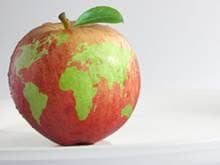
By Curtis Cook
From Intent.com
When did eating become so complicated? How do we sort our way through hundred mile diets and the dilemmas of omnivores? Should I feel terrible for eating California lemons in Canada? Everyone needs to eat but the act has evolved from necessity to complexity. Humans have developed an unhealthy relationship with food. As we struggle to embrace environmentally-responsible lifestyles, that relationship with food becomes even more complex.
It’s enough stress to give anyone heartburn, but here are some simple suggestions to nurture your inner green foodie.
Seek the Local Advantage
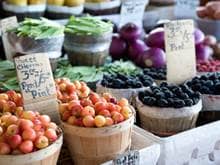
If you can get fresh local produce in your community you are doing yourself and the planet a world of good -- minimal transportation, minimal greenhouse gas emissions, minimal preservatives (and probably pesticides) and maximum flavor and nutrition.
Be Adventurous: Start a Backyard, Balcony, or Community Garden
 Even in the darkest urban jungle, space can be found to nurture a food patch. Find out what local fruits, vegetable and herbs will grow in your geographic region and soil conditions and give it a try. In addition to providing delicious fresh ingredients for your meals, gardening can be a rewarding social and educational experience, as well as a source of exercise.
Even in the darkest urban jungle, space can be found to nurture a food patch. Find out what local fruits, vegetable and herbs will grow in your geographic region and soil conditions and give it a try. In addition to providing delicious fresh ingredients for your meals, gardening can be a rewarding social and educational experience, as well as a source of exercise.Eat Your Veggies…and Fruit
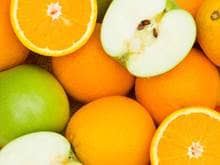
Mom was right, and there is no denying it. To paraphrase healthy eating pioneer and Fit for Life author Harvey Diamond, those scientific discoveries of health enhancing nutrients are never found in pork chops. Arguably, a vegetarian diet is easier on the planet and the body, as long as you eat a balanced diet to get all the nutrients you need. Meat, dairy and grain production take more energy then they return and consume large tracts of land. Experiment by introducing more produce into your diet and try to go for a few days without meat.
Get Energized with Raw Foods
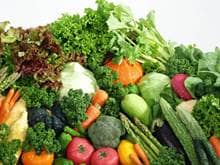 Increasing your intake of uncooked fruits and vegetables increases your access to health-building nutrients and reduces your food production footprint. Eating a life force diet high in raw foods reduces energy consumption for cooking and heating, as well as the embedded energy from processing and over-packaging.
Increasing your intake of uncooked fruits and vegetables increases your access to health-building nutrients and reduces your food production footprint. Eating a life force diet high in raw foods reduces energy consumption for cooking and heating, as well as the embedded energy from processing and over-packaging.Cut Out Take-Out

If you have to order it through a clown’s mouth, eat it out of a waxed paper wrapper or wait thirty minutes before it’s free, it is not a green food choice. The planet and your digestive tract will thank you for reducing or eliminating your fast-food consumption.
Drink Water
 Fresh water is arguably the most undervalued resource on the planet. Its value as a commodity (for those who think of water this way) increases every day. Fresh clean water is worth far more than the most precious metal or gem. If you are blessed with a clean, safe source drinking water, be grateful and drink it instead of canned soft drinks, alcoholic beverages, coffee or bottled sports drinks. Water is the only beverage your body needs.
Fresh water is arguably the most undervalued resource on the planet. Its value as a commodity (for those who think of water this way) increases every day. Fresh clean water is worth far more than the most precious metal or gem. If you are blessed with a clean, safe source drinking water, be grateful and drink it instead of canned soft drinks, alcoholic beverages, coffee or bottled sports drinks. Water is the only beverage your body needs.Small Meal = Small Energy

If you are heating up leftovers or a small meal, consider an energy efficient option to the stove or oven. A small electric grill or toaster oven will likely use less energy for the same task. As your large kitchen appliances wear out, consider recycling options, as well as replacement with Energy Star or other energy efficient models.
If You Can't Eat It, Compost It
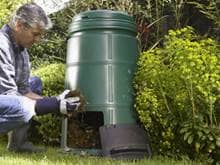
Don't let your food waste enter the landfill. Most food (meat and heavily processed and packaged foods being obvious exceptions) can be returned to the earth with minimal effort. Composting can be a great learning experience for kids as well. Don’t have a composter? Here’s how to create one – whether you have a big back yard or not.
Become Food Informed
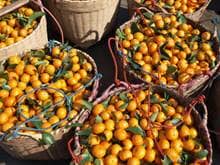
If people knew the history behind the food on their plate, it would change the modern American diet. We accept livestock bloated on antibiotics, pesticide-laden vegetables, depleted fish stocks on the verge of collapse and a grand experiment to genetically modify crop after crop. Fortunately, there are greener alternatives for meat and fish lovers, as well as recognized practices for sustainable and organic food harvesting. Ask your grocer and the owner of your favorite restaurant about their food suppliers. You deserve to know what you are eating and the impact it may be having on you and the planet.
Respect the Building Blocks of Healthy Food
 Every living thing on this planet, including humans and the “real food” they consume, is sustained by clean air, clean water and clean soil. Respect and protect these treasures and you are well on your way to embracing a green diet.
Every living thing on this planet, including humans and the “real food” they consume, is sustained by clean air, clean water and clean soil. Respect and protect these treasures and you are well on your way to embracing a green diet.



Tidak ada komentar:
Posting Komentar